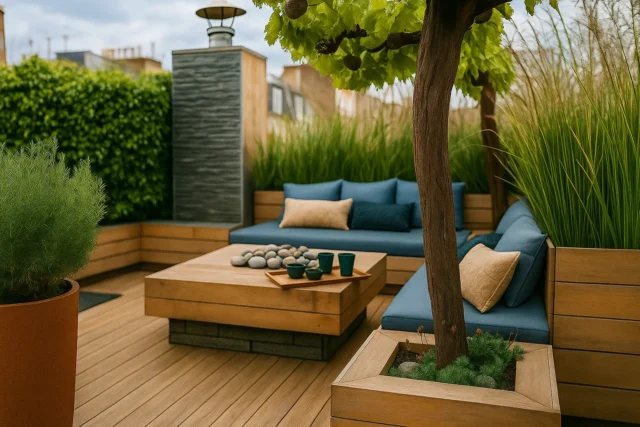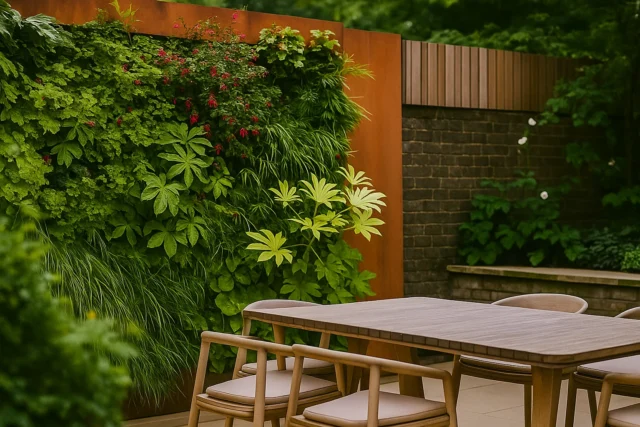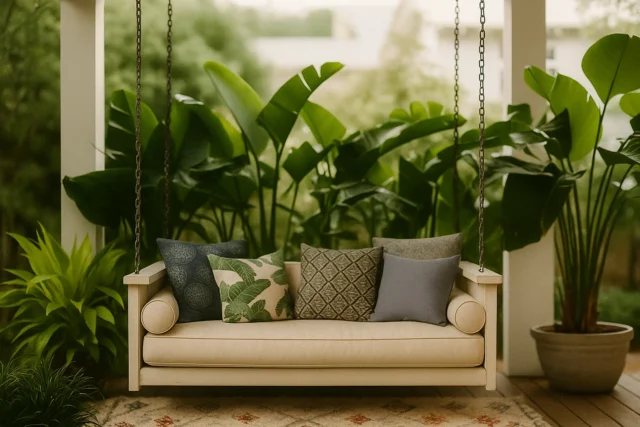You might not realize it, but your bedroom decor plays an essential role in your sleep quality. The colors on your walls, the arrangement of your furniture, and even the textiles you choose can either promote relaxation or create distractions. By considering these elements, you could transform your sleep environment into a sanctuary. What specific changes can you make that might lead to better rest? The answer could lie in the details you’ve overlooked.
Table of Contents
Toggle
The Impact of Color Psychology
Color plays an essential role in setting the mood of your bedroom, greatly influencing your sleep quality. Each hue carries specific color associations that can evoke distinct emotional responses.
For instance, calming blues and soft greens promote tranquility, making it easier for you to unwind. On the other hand, vibrant reds and yellows could energize your space, potentially disrupting your ability to relax.
Choosing the right colors not only enhances your bedroom’s aesthetic but also directly impacts how you feel when you enter the room. By understanding the emotional responses triggered by different shades, you can create a sleep environment tailored to your needs, encouraging restful nights and peaceful dreams.

Importance of Lighting Choices
When it comes to creating a restful bedroom, your lighting choices play an essential role.
Natural light can enhance your mood and regulate your sleep-wake cycle, while the color temperature of your bulbs can either soothe or energize you.
Choosing the right lighting can greatly impact your overall sleep quality and comfort.
Natural Light Benefits
During the day, natural light plays an essential role in creating a serene bedroom atmosphere that enhances your sleep quality. Sunlight exposure helps regulate your circadian rhythm, making it easier for you to fall asleep at night.
By maximizing natural light in your space, you can enjoy several benefits:
- Improves mood and reduces stress
- Increases alertness and productivity
- Supports healthier sleep patterns
- Enhances overall well-being
- Encourages a natural sleep-wake cycle
To achieve these advantages, consider positioning mirrors to reflect light, using sheer curtains, or rearranging your furniture to allow more sunlight in.
Embracing natural light not only beautifies your room but also sets the stage for better, more restorative sleep.

Color Temperature Impact
Lighting choices greatly influence your bedroom’s ambiance and your sleep quality. When you opt for warm hues, you create a calming environment that encourages relaxation and restful sleep.
In contrast, exposure to blue light—commonly emitted by screens and harsh LEDs—can disrupt your circadian rhythm, making it harder to fall asleep.
To enhance your sleep experience, consider using dimmable lamps and soft, warm-toned bulbs in your bedroom. This way, you can adjust the lighting to match your evening routine and signal to your body that it’s time to wind down.

Decluttering for Better Sleep
A cluttered bedroom can make it hard for you to relax and fall asleep.
Embracing minimalism and organizing your space can create a calming atmosphere that promotes better rest.
Importance of Minimalism
Embracing minimalism in your bedroom can greatly enhance your sleep quality. By creating clutter-free zones, you reduce distractions and promote relaxation.
Minimalist furniture allows for a more open and serene environment, making it easier for you to unwind. Here are some tips to achieve a minimalist bedroom:
- Choose multifunctional furniture to save space
- Limit decorative items to only what you love
- Keep surfaces clear to avoid visual clutter
- Organize your belongings with hidden storage
- Use calming, neutral colors for a soothing atmosphere
When you declutter your bedroom, you’re not just organizing; you’re setting the stage for better sleep.
Adopting minimalism can transform your space into a peaceful retreat, allowing you to rest more effectively each night.

Color and Atmosphere
Choosing the right colors in your bedroom can greatly affect your sleep quality. Soft, muted tones like blues, greens, and lavenders create a calming bedroom ambiance that promotes relaxation. These colors foster a sense of tranquility, helping you unwind after a long day.
On the other hand, bold or bright colors can interfere with your ability to fall asleep, creating an overstimulating environment.
To achieve color harmony, consider how different shades interact with each other. Pairing light hues with neutral accents can enhance the soothing atmosphere.
Additionally, using darker shades for accent walls can create a cozy nook without overwhelming the space. By thoughtfully selecting your bedroom colors, you can cultivate an atmosphere that supports restful sleep and rejuvenation.

Organizing Sleep Environment
Color plays a significant role in setting the mood of your bedroom, but the organization of your sleep environment is equally important for promoting better rest.
A cluttered space can disrupt your sleep hygiene and lead to increased stress. To create a serene sleep environment, consider these tips:
- Keep surfaces clear of unnecessary items.
- Store away clothes and belongings that don’t belong in the bedroom.
- Limit electronic devices to reduce distractions and enhance sound control.
- Use calming scents, like lavender, to encourage relaxation.
- Create a dedicated space for meditation or reading to unwind before bed.

Furniture Arrangement and Flow
Harmony in a bedroom is often achieved through thoughtful furniture arrangement and flow. When you arrange different furniture types, consider how they interact to create a sense of balance.
Position your bed as the focal point, ensuring it’s easily accessible from all sides. Avoid clutter by maintaining clear pathways, which enhances spatial harmony. Place nightstands within reach, and consider the height and scale of furniture to prevent overwhelming the space.
If you have a desk or chair, keep them in a corner to allow for open movement. By strategically placing your furniture, you’ll cultivate a calming environment that encourages relaxation and restful sleep.
Prioritizing flow can transform your bedroom into a peaceful sanctuary, promoting better sleep quality.

Textiles and Sleep Quality
The right textiles can greatly impact your sleep quality, transforming your bedroom into a cozy retreat.
Choosing the right textile materials and fabric textures can make a world of difference. Here are some key considerations for your space:
- Bedding choices: Opt for breathable, soft fabrics that regulate temperature.
- Soft furnishings: Incorporate cushions and throws for added comfort.
- Layering techniques: Use multiple layers to adjust to seasonal textiles easily.
- Noise reduction: Select thick curtains or fabric wall hangings to minimize disturbances.
- Hypoallergenic options: Choose textiles that reduce allergens for a healthier sleep environment.

Personalization and Comfort
Creating a bedroom that reflects your personal style plays a significant role in enhancing comfort and promoting better sleep. When you add personalized accents, like your favorite artwork or cherished photos, you create an inviting atmosphere that feels uniquely yours. This sense of ownership can reduce stress and help you unwind at the end of the day.
Additionally, consider incorporating comfort layers, such as plush throws or supportive pillows, to enhance your sleeping environment. These layers not only add visual appeal but also provide the physical support your body craves.

Nature-Inspired Decor Elements
Bringing nature indoors can greatly enhance your bedroom’s ambiance and promote a calming atmosphere for sleep. Incorporating nature elements helps create a serene retreat where you can unwind.
Here are some ideas to ponder:
- Use earthy tones to paint your walls, fostering a connection to the outdoors.
- Integrate plant textures through soft furnishings like cushions or throws.
- Choose organic materials for your furniture, ensuring sustainable decor.
- Add botanical prints or serene landscapes in your artwork.
- Encourage fresh air and calming scents with indoor plants or essential oil diffusers.

Creating a Calming Atmosphere
A serene bedroom environment can greatly improve your sleep quality and overall well-being. To create this calming atmosphere, focus on incorporating soothing scents like lavender or chamomile. Using essential oil diffusers or scented candles can help you unwind after a long day.
Additionally, consider adding calming sounds to your space. Soft music, nature sounds, or white noise machines can drown out distractions and promote relaxation.
Keep your decor simple and clutter-free, using soft colors and natural materials to enhance tranquility. Make sure your bedding is comfortable and inviting, as this will also contribute to a peaceful environment.













